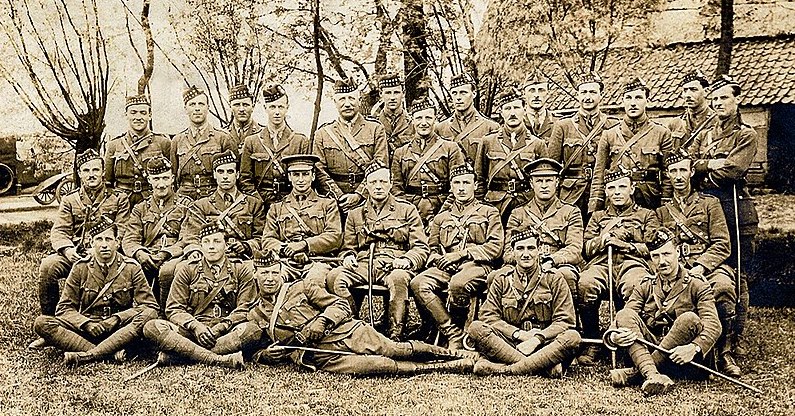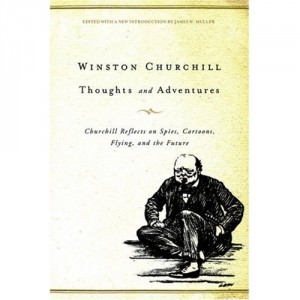
A New Edition of “Thoughts and Adventures”
 Thoughts and Adventures
Thoughts and Adventures
by Winston S. Churchill, edited with a new introduction by James W. Muller. ISI Books edition, 380 pages, illus., softbound.
If Churchill’s 1932 volume of essays on politics, cartoons, elections, hobbies and adventures during the Great War is really an “undiscovered classic” (as the publishers state on the back cover of this new edition) it will be news to generations of readers. Thoughts and Adventures (first published as Amid These Storms in USA) is widely distributed. It was translated into Danish, French, German, Korean, Spanish and Swedish.
But what makes the new volume so valuable, aside from its easygoing paperback price—is an outstanding new introduction by Churchill scholar James W. Muller. In a 28-page essay, Muller plumbs the depths of Churchill’s intellect, the raison d’etre of a book which is far more than a haphazard collection of “potboilers” (as WSC himself sometimes referred to his articles).
Seeing both past and future
The reader comprehends how deeply Churchill thought about transcendental matters. Here are his “big four” futurist essays: “Shall We All Commit Suicide?,” “Fifty Years Hence,” “Consistency in Politics” and “Mass Effects in Modern Life.” Here too are “My Spy Story” and “The Battle of Sidney Street.” These consider, in everyday experiences, issues of civil liberty and civilian control of the military or police.
Thoughts and Adventures witnesses Churchill’s collegial politics in his appreciation of opponents. We see this in “Election Memories” and “Cartoons and Cartoonists.” And we meet those who influenced him in “Personal Contacts.” We see war as Churchill saw it: “With the Grenadiers,” “‘Plugstreet,’” “The U-Boat War,” “The Dover Barrage.” We watch history made over his burly shoulder in “The Irish Treaty.” Two heroes from the opposite ends of history appear in “Clemenceau” and “Moses.” We even learn how to relax, with “Hobbies” and “Painting as a Pastime.”
Nor is Professor Muller content with a foreword. He provides a host of new footnotes, largely provided by the scholar Paul Courtenay. These aid the modern reader by describing events, people and places no longer familiar. He also appends a thick set of notes, on the origin of each essay, its titular and textual variations. In many cases we learn how it came to be written.
Fastidious detail
Only in this edition do we learn that the foreword to Thoughts and Adventrues was not written by WSC. It was penned by his longtime friend and secretary Eddie Marsh. Marsh emulated the boss’s style so perfectly that Churchill wrote on his copy, “Rather good pastiche.”
Muller’s notes record every alteration in each essay. Churchill, an indefatigable reviser, tweaked and molded his work to suit new appearances and audiences. In “My Spy Story,” for example, Muller produces five lengthy paragraphs from the original Cosmopolitan appearance. Omitted from the book, they describe a “much trusted” German spy in Britain, whose reports were studied in Berlin and Wilhelmshaven. And, just to be sure you know, Muller adds that Wilhelmshaven was the “headquarters of Germany’s High Seas Fleet.”
Truly this is as eminent an edition of Thoughts and Adventures as we could hope to have—a tribute to the editor and Mr. Courtenay, as to the author. It serves inform future generations of Churchill’s political instinct, judgment, foresight and magnanimity.






